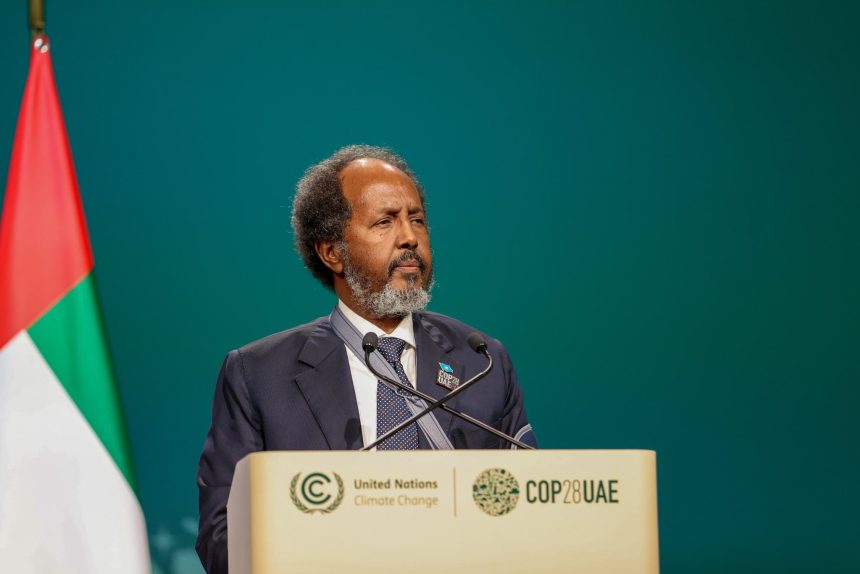Facebook Twitter (X) Instagram Somali Magazine - People's Magazine
Somali President Hassan Sheikh Mohamud has called on the international community to take stronger action in providing climate finance to Africa, saying that the continent’s development cannot be separated from global decarbonization efforts. Speaking at the Second Africa Climate Summit in Addis Ababa, he stressed that countries like Somalia are among the most vulnerable to climate change, despite contributing very little to global emissions. He noted that Somalia has already experienced the devastating effects of climate change, such as the prolonged drought from 2021 to 2023 that left 7.8 million people — almost half of the population — in dire conditions. The drought led to severe food shortages, displacement of families, and loss of livelihoods, showing how climate shocks directly threaten survival and stability in the country.
President Mohamud highlighted several steps Somalia has taken in recent years to address climate change. Among these is the Green Somalia Initiative, which aims to plant 10 million trees to combat deforestation and restore degraded land. Somalia has also pledged $10 million to the African Union’s Great Green Wall project, which works to halt desertification across the Sahel and the Horn of Africa. In addition, the country has set up its National Climate Fund to better manage climate investments, and in 2024 it launched a $100 million partnership with the Green Climate Fund to strengthen resilience and support sustainable projects. Another key milestone was Somalia becoming the first East African nation to submit its updated Nationally Determined Contribution (NDC) 3.0, reaffirming its commitment to tackling climate change through nationally tailored solutions.

Despite these efforts, the president warned that Somalia cannot face the crisis alone. He urged global partners to move beyond promises and make sure that pledged climate funds are delivered in a predictable and timely way, especially to frontline nations that are hit hardest. He emphasized that financial support must be accessible on fair terms and should reach countries like Somalia directly, rather than being caught up in bureaucratic delays. According to him, the operationalization of the global “loss and damage” mechanism is essential to help communities that are already suffering from irreversible climate impacts.
Mohamud’s remarks were supported by a strong delegation of Somali leaders, including Deputy Prime Minister Salah Ahmed Jama, Environment Minister Lt. Gen. Bashir Mohamed Jama, Foreign Minister Abdisalam Abdi Ali, Finance Minister Bihi Iman Egeh, and Ambassador to Ethiopia Abdullahi Warfa. Their presence reflected what Somali officials described as a united stand on climate action, showing the world that Somalia is serious about confronting the crisis and ready to work in partnership.
By taking part in the summit, Somalia sought to remind the world that while African countries contribute the least to global warming, they are suffering its harshest consequences. The president’s call was clear: international climate finance must be scaled up urgently, made accessible to those on the frontline, and designed to support both immediate recovery and long-term resilience. Only then, he said, can Africa pursue sustainable development while contributing to the global fight against climate change.

